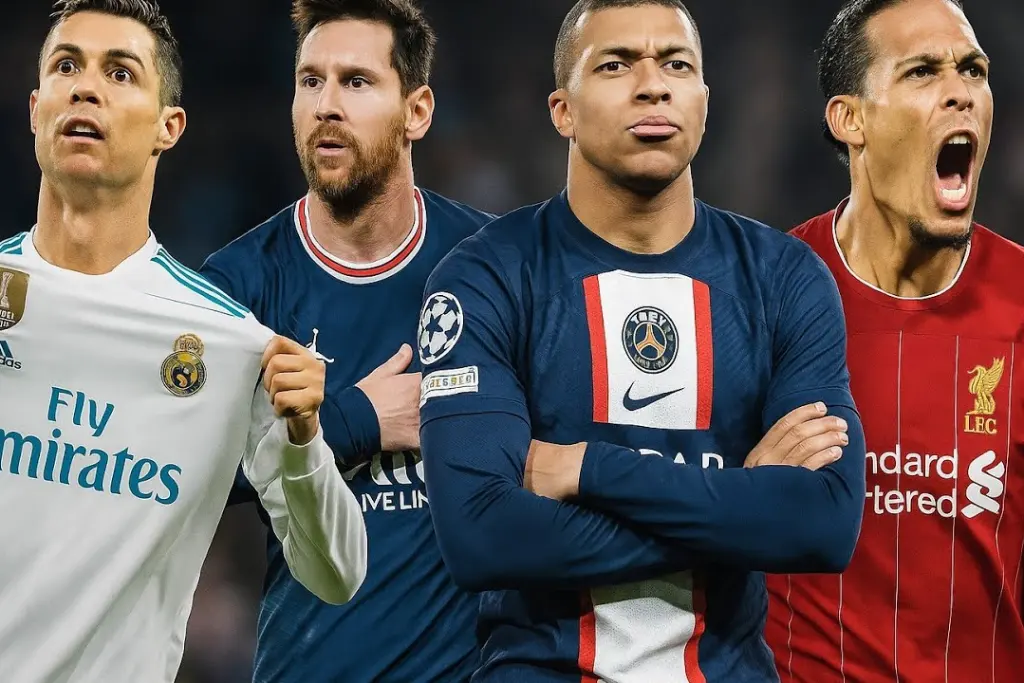In a world where differences abound in language, religion, politics, and customs, sports provide a unique and potent unifying factor. Whether it is a local pickup game in the park, the Olympic Games, or the World Cup, sports have a special power to unite people from different backgrounds and break down barriers.
However, what specific ways do sports foster cultural unityLet us examine how the playing field can serve as a conduit between different worlds.
1. A Language Without Words That Is Universal
The excitement of a goal, the heartache of a defeat, and the ecstasy of victory can all be understood without speaking the same language. Because most sports have widely accepted rules, people from all walks of life can bond through competition, teamwork, and a common interest.
Example:Despite not speaking the same language, children from different ethnic groups can interact via play during a soccer match in a remote town.
2. International Gatherings Promote World Friendship
In addition to being competitions, events like the Olympics, FIFA World Cup, and Cricket World Cup are international celebrations that highlight respect for one another and pride in one’s country. Globally, supporters come together to applaud, rejoice, and occasionally even grieve.
Example:Athletes represent their countries and themselves by marching side by side during the opening ceremony of the Olympics, sending a strong message of unity and peace.
3. Sportsmen As Cultural Representatives
Sports stars frequently turn into worldwide celebrities whose impact cuts over national boundaries.In addition to being winners in their respective sports, athletes like Serena Williams, Lionel Messi, Naomi Osaka, and Shaquille O’Neal serve as cultural ambassadors, inspiring people of all races and nationalities across continents.
Example:By bringing Chinese basketball to the attention of the world and helping to introduce the NBA to China, Yao Ming enhanced East-West understanding of one another’s cultures.
4. Local Impact Is Created By Grassroots Sports
Sports programs at the local level unite individuals from many communities, ethnic groupings, or even nations.These initiatives foster friendship, respect, and teamwork in settings where conflicts might otherwise arise.
Example:NGOs frequently use soccer leagues or other sports activities in refugee camps to foster camaraderie, healing, and development among displaced youth from various nations and cultures.
5. Using Sportsmanship To Promote Cultural Exchange
Through cuisine, customs, chants, attire, and rituals, sports expose athletes and spectators to diverse cultures.Participants are also exposed to fresh viewpoints when they travel for international games, training sessions, and competitions.
Example:When a Japanese baseball player joins an MLB team in the United States, they contribute not just their athletic prowess but also their distinct cultural values, discipline, and rituals, which enhance the team’s atmosphere.
6. Dispelling Myths And Fostering Compassion
When individuals from diverse backgrounds unite through sports, stereotypes tend to disappear.Respect for one another and common objectives create a feeling of community that can combat prejudice and advance inclusion.
Example:The Paralympic Games promote respect and admiration among cultures and communities by honoring athletes with disabilities from around the globe.
7. Sport-Based Social Movements
In the face of division, sports have also served as a forum for social and cultural cohesion.From players taking a knee for social justice to Muhammad Ali’s anti-war advocacy, sports frequently ignite significant dialogues that cut beyond national boundaries.
Example:Nelson Mandelabacked South Africa’s 1995 Rugby World Cup brought the postapartheid country together by encouraging support for the national team.
Last Remark
In its most basic form, sport is a universal language of fervor, tenacity, and humanity rather than just a game.It teaches us that we can play together, support one another, and develop together in spite of our numerous differences.Sports’ ability to bring people together and promote healing is more important than ever in a time when the globe seems to be growing more divided.




